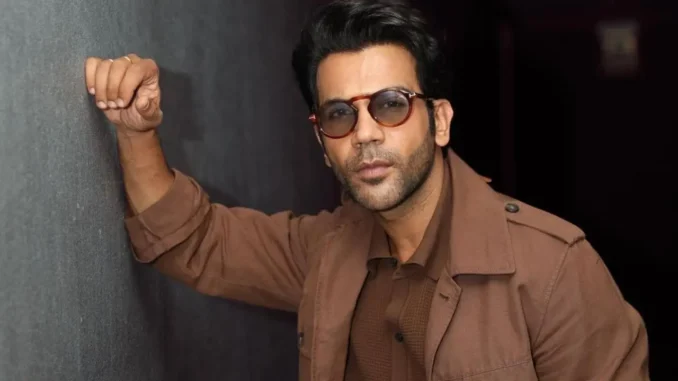
Rajkummar Rao’s 2017 romantic comedy Behen Hogi Teri has found itself in the eye of a legal storm years after its release, as fresh allegations have surfaced accusing the film of hurting religious sentiments. The case, which has been filed in a district court, claims that specific promotional material and content from the film portray religious themes and deities in a disrespectful manner, thereby causing offense to the sentiments of certain communities.
The complaint reportedly centers around a particular poster and sequence in the movie where Rajkummar Rao’s character is seen dressed as Lord Shiva. The plaintiff alleges that the depiction was used in a promotional context without adequate reverence and that the portrayal trivialized religious symbolism for the sake of humor and marketing. This, according to the legal petition, amounts to a violation of faith and is disrespectful to Hindu beliefs.
The case was registered under relevant sections of the Indian Penal Code that deal with deliberate and malicious acts intended to outrage religious feelings. The complainant has demanded accountability from both the filmmakers and the lead actor, urging the court to take strict action against those involved in conceptualizing and executing the scene.
For those unfamiliar, Behen Hogi Teri is a romantic comedy that revolves around Gattu (played by Rajkummar Rao), a small-town boy madly in love with his neighbor Binny (played by Shruti Haasan). However, he constantly finds himself trapped in the cultural narrative that all neighborhood girls must be treated like “sisters.” The film uses satire and light-hearted moments to highlight societal expectations, but it now appears that not everyone appreciated the comedic liberties taken.
Reacting to the controversy, the production team has issued a brief statement clarifying that the intention was never to disrespect or demean any religious faith. “The scene in question was meant to be humorous and was handled within the boundaries of good taste,” said a spokesperson from the production house. “We respect all religions and beliefs, and if anyone’s sentiments have been hurt, we regret that deeply.”
Rajkummar Rao has not yet commented publicly on the matter, but sources close to the actor have indicated that he may respond after consulting with legal counsel. Given his track record for socially conscious roles and his public image of integrity, many believe the portrayal was unintentional and not designed to provoke.
Legal experts suggest that the outcome of the case will depend largely on the court’s interpretation of artistic freedom versus public sentiment. In recent years, the Indian film industry has seen a growing number of such cases, where scenes, posters, or dialogues have come under scrutiny for allegedly hurting religious or cultural sentiments. While some of these have been dismissed, others have led to changes in the content or public apologies.
This renewed controversy over Behen Hogi Teri comes at a time when debates over freedom of artistic expression and sensitivity toward cultural diversity are intensifying in the country. Whether the case holds in court or not, it underscores the delicate balancing act filmmakers must walk between creativity and public responsibility.
For now, the case has been admitted for hearing, and all eyes are on the court proceedings to see how this legal battle unfolds.



